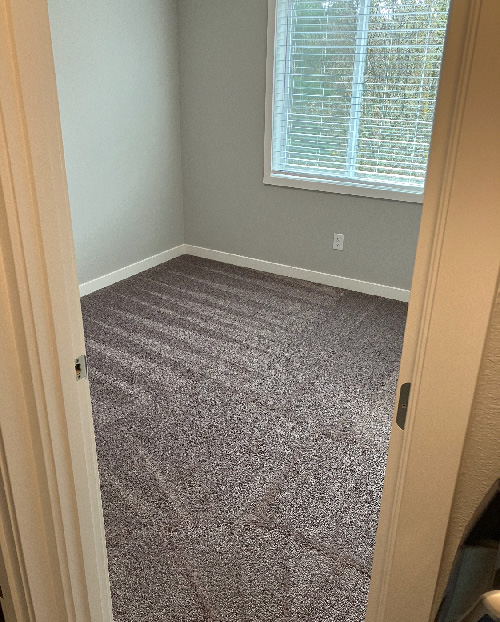Introduction
Cleaning is more than just a chore; it's an art. A professional cleaner knows this all too well. They wield their tools with finesse, transforming cluttered, dusty spaces into pristine sanctuaries. But what exactly are the daily tools of a professional cleaner? In this article, we will delve deep into the essential equipment and supplies that every professional cleaner relies on to deliver top-notch results. We'll explore everything from basic cleaning solutions to specialized gear, showcasing how each tool plays a vital role in the cleaning process. So, buckle up as we reveal the secrets behind the daily toolkit of a professional cleaner.
Revealed: The Daily Tools of a Professional Cleaner
When you think about it, the effectiveness of a cleaning service often boils down to one crucial element: the tools they use. A professional cleaner's toolkit is meticulously curated to ensure efficiency and quality in every task they undertake. So, what items are included in this toolkit?
1. Cleaning Chemicals
Cleaning chemicals form the backbone of any professional cleaner's toolkit. These products are specifically designed to tackle various surfaces and types of dirt.
1.1 All-Purpose Cleaners
An all-purpose cleaner is perhaps the most versatile tool in a professional cleaner's arsenal. It can be used on countertops, floors, and even some appliances.
- Key Features: Non-toxic formulations Biodegradable options available Effective against grease and grime
1.2 Disinfectants
In today's world, disinfectants have become essential for ensuring hygiene.
- Application Areas: Bathrooms Kitchen surfaces High-touch areas like doorknobs and light switches
1.3 Glass Cleaners
Having crystal-clear windows or mirrors is crucial for maintaining a polished appearance.
- Benefits: Streak-free finish Quick-drying formulas
2. Cleaning Tools
Tools complement cleaning chemicals by aiding in physical dirt removal.
2.1 Microfiber Cloths
Microfiber cloths are favored by many professional cleaners due to their ability to trap dirt without scratching surfaces.
- Advantages: Washable and reusable Highly absorbent
2.2 Mops and Buckets
A good mop can make or break your floor-cleaning routine.
- Types of Mops: Traditional string mops Flat mops with disposable pads
3. Equipment for Specialized Tasks
Sometimes, general cleaning isn't enough; specialized equipment is necessary.
3.1 Vacuum Cleaners
From carpets to hard floors, vacuum cleaners are indispensable for removing dust and allergens.
- Types: Upright vacuums Canister vacuums
3.2 Carpet Cleaners
For deep cleaning carpets, nothing beats dedicated carpet cleaners.
- Features: Hot water extraction capability Ability to remove tough stains
4. Personal Protective Equipment (PPE)
Safety shouldn’t be overlooked while cleaning.
4.1 Gloves
Gloves protect hands from harsh chemicals and bacteria encountered during cleaning tasks.
- Types include: Disposable latex gloves Reusable rubber gloves
4.2 Masks and Goggles
These items protect against inhalation of harmful fumes and splashes from chemicals.
5. Organizational Tools
Keeping tools organized enhances efficiency during work hours.
5.1 Cleaning Caddies
Caddies allow cleaners to transport their supplies easily between rooms or jobs.

- Benefits: Saves time searching for tools Reduces strain on body by keeping items within reach
5.2 Storage Solutions
Proper storage solutions prolong the life of cleaning tools by preventing damage.
6. Scheduling Tools
Even with great tools, efficiency hinges on effective scheduling.
6.1 Digital Calendars & Apps
Professional cleaners benefit from utilizing digital calendars or apps that help manage appointments efficiently.
FAQs About Professional Cleaning Tools
Q1: What is the most important tool for a professional cleaner?
A: While all tools serve vital functions, an all-purpose cleaner tends to be the most important due to its versatility across different surfaces and materials.
Q2: How often should I replace my microfiber cloths?
A: Microfiber cloths can last several washes but should be replaced when they show signs of wear or lose their effectiveness at trapping dirt (usually after about 300 washes).
Q3: Are eco-friendly cleaners effective?
A: Yes! Many eco-friendly cleaners offer comparable efficacy to traditional chemicals while being safer for both users and the environment.
Q4: Do professional cleaners use industrial-strength products?
A: While they may use stronger products for specific tasks, many professionals prefer using high-quality commercial-grade products that balance safety with effectiveness.
Q5: Is it necessary to wear gloves while cleaning?
A: Wearing gloves is highly recommended as it protects your skin from harsh chemicals as well as germs present on various surfaces being cleaned.
Q6: How can I choose a reliable cleaning service?
A: Look for reviews online, ask about their training procedures for staff regarding tool usage, and inquire about their insurance coverage!
Conclusion
Cleaning may seem simple at first glance; however, becoming an expert takes knowledge about techniques as well as an understanding of what tools are necessary for each job type — which brings us back full circle to our topic today! By revealing the daily tools of a professional cleaner, we've highlighted not only what these experts rely on but also emphasized how essential proper equipment is in achieving outstanding results consistently across various environments – whether residential or commercial settings!
So next time you admire a spotless home or office space, remember there’s likely an array of specialized equipment working behind-the-scenes — all handled skillfully by those dedicated professionals who make cleanliness their craft!
This Carlton cleaning company comprehensive guide provides insight into both common practices within the industry and showcases best practices you can implement yourself if you're looking into taking your own cleaning regimen up several notches!